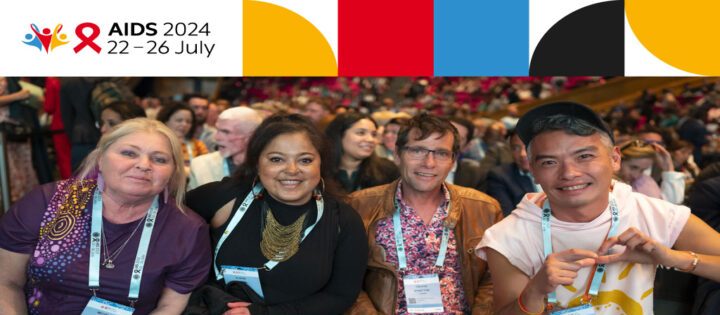Ugandan trans advocate pleads with international AIDS experts for support
Colin Stewart is a 45-year journalism veteran living in Southern…
‘It is no longer safe for us to gather together as a community’ — trans advocate Jay Mulucha

Below is an abridged and modestly edited version of an article published in AllAfrica.com:
By Melody Chironda
MUNICH, Germany — “I want all human beings to be safe, to be treated with dignity, and to have equal rights,” was the message to an audience of international AIDS experts from Jay Mulucha, a trans man who is the executive director of FEM Alliance Uganda, an organization formed in 2012 to promote fundamental rights and human dignity for a stigma-free Uganda.
Mulucha was the first trans man to give opening remarks at an International AIDS Conference.
“I’m here in Munich, but I still live in Uganda, so I need to consider my safety in what I share with you, as my life is still in danger every day at home. I will share about what trans men in Uganda living with HIV experience, but I will not name names. I hope you hear this and understand me,” said Mulucha.
Mulucha has worked on the frontlines against Uganda’s Anti-Homosexuality Act (AHA), which outlaws sexual relations among people of the same sex and imposes the death penalty for so-called “serious homosexual acts”. The country’s Constitutional Court upheld the law, which allows the death penalty for “aggravated homosexuality”, despite widespread condemnation from rights groups and others abroad.
[That decision is currently being appealed to Uganda’s Supreme Court.]
Rights groups have reported that the new law has led to a surge in abuse against LGBTQI+ people, including torture, rape, and evictions, primarily by private citizens.
Mulucha said that the challenges that trans men already faced massively increased as their lives became even more endangered as the result of the AHA.
“It is no longer safe for us to gather together as a community, and so we have become even more vulnerable and isolated than we were before, making us feel completely alone,” he said. “This isolation has led many of us to experience suicidal thoughts, as our situation can seem completely hopeless. The Anti-Homosexuality Act has had devastating effects on the trans community. We are the face of the LGBTQI+ community, as we are the most visible members, so the impact of this act has particularly performed on us.”
He added that the act has had a huge impact on the FEM Alliance’s services to LGBTQI+ community members. The organization recently received a notice of eviction from the building where they provided shelter for homeless trans people after they had moved the homeless shelter to their office. This meant that not only would their service users be forced into homelessness again, but they were also unable to continue to provide access to essential HIV services, including HIV testing and provision of ART medication, as well as a psychosocial support center for mental wellness.
Muluchas spoke in favor of sanctions placed against Uganda by the United States and the World Bank. He went on to seek support from the International AIDS Conference.

“The sanctions and penalties being placed by the international community on the Ugandan government are working,” Mulucha said, “but the lifting of these sanctions needs to be contingent not on policy changes but on evidence of changes in implementation. For this, you need to listen to the communities and hear what we are saying. We are still suffering and need your support more than ever, so the funding that is being denied to the government should be funneled directly into LGBTIQ organizations and communities in Uganda.”




